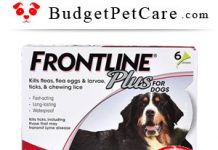Welcoming a puppy into your home is an exciting and joyous occasion, filled with wagging tails and boundless energy. As a new pet parent, one of the most rewarding responsibilities is ensuring your furry friend grows up healthy and happy. This journey begins with understanding the best puppy health care practices, which lay the foundation for a lifetime of well-being. In this guide, we’ll explore essential tips and expert advice to help you nurture your puppy’s health, from nutrition and exercise to vaccinations and regular vet visits. With a warm heart and a little guidance, you can provide the loving care your puppy needs to thrive and fill your home with endless happiness.
Choosing the Right Nutrition for Your Growing Puppy
Ensuring your puppy receives the proper nutrition is pivotal to their development and long-term health. Puppies have unique dietary needs compared to adult dogs, and it’s essential to choose a food that supports their rapid growth and energy levels. Look for formulas specifically designed for puppies, as these are enriched with the right balance of proteins, fats, and essential nutrients.
- High-Quality Protein: Opt for foods that list meat as the first ingredient. Protein is crucial for muscle development and overall growth.
- Healthy Fats: Essential for brain development and energy, ensure the diet includes sources like fish oil or chicken fat.
- Calcium and Phosphorus: These minerals are vital for strong bones and teeth. A balanced ratio supports healthy skeletal development.
- Vitamins and Minerals: Ensure the diet includes a range of vitamins and minerals, like vitamin E and selenium, to bolster the immune system.
Consult with your veterinarian to tailor the nutrition plan to your puppy’s breed, size, and specific health needs. Remember, a well-nourished puppy is a happy puppy, ready to explore the world with vigor and joy.

Creating a Safe and Stimulating Environment for Optimal Development
Ensuring your puppy thrives begins with crafting an environment that is both secure and enriching. Puppies are naturally curious and energetic, so creating a space where they can explore safely is crucial. Begin by puppy-proofing your home: remove or secure any potentially harmful objects, such as electrical cords and toxic plants. This initial step is essential in preventing accidents and promoting a sense of security for your furry friend.
To stimulate your puppy’s development, incorporate elements that cater to their mental and physical needs. Interactive toys that challenge their problem-solving skills, such as puzzle feeders, can be a great addition. Moreover, providing a variety of textures and surfaces for them to walk on helps improve their coordination and balance. Consider these elements to enhance your puppy’s environment:
- Safe chew toys: Helps with teething and keeps them entertained.
- Cozy resting areas: A quiet corner with a comfortable bed where they can retreat and relax.
- Social interaction: Regular playdates with other puppies or well-mannered adult dogs to build social skills.

Essential Vaccinations and Regular Vet Visits for Long-term Health
Ensuring your puppy’s long-term health starts with a foundation of essential vaccinations and consistent vet visits. These visits are not just a formality but a crucial part of your pet’s healthcare routine. Core vaccinations protect against diseases like distemper, parvovirus, and rabies, which are not only highly contagious but can also be life-threatening. Your veterinarian will recommend a schedule based on your puppy’s age, health, and lifestyle, ensuring they receive the right shots at the right time.
- Distemper: Prevents a virus affecting the respiratory, gastrointestinal, and central nervous systems.
- Parvovirus: Protects against a highly contagious virus causing severe gastrointestinal issues.
- Rabies: Mandatory in many regions; prevents a fatal viral infection transmitted through bites.
Regular vet check-ups go beyond vaccinations, offering a chance to monitor your puppy’s growth, nutritional needs, and overall well-being. These visits help in early detection of any potential health issues, allowing for prompt treatment and peace of mind. Trust in the guidance of your veterinarian to tailor a health plan that keeps your furry friend thriving for years to come.

Understanding and Addressing Common Puppy Health Concerns
When welcoming a new puppy into your home, understanding their health needs is crucial to ensuring their well-being. Puppies, much like human babies, are susceptible to a range of health issues that require attention. Gastrointestinal issues, such as diarrhea and vomiting, are common due to dietary changes or stress. Parasitic infections like worms or fleas can also affect young pups, often requiring specific treatments and preventive measures. Additionally, skin conditions such as rashes or dry skin can arise from allergies or environmental factors. Recognizing these issues early can prevent them from developing into more serious problems.
To address these concerns, establish a routine that includes regular vet visits and a balanced diet tailored for puppies. Ensure they receive all necessary vaccinations and consider scheduling a deworming session with your vet. Here are some tips to maintain your puppy’s health:
- Nutrition: Choose high-quality puppy food that meets their dietary needs.
- Hydration: Always provide fresh water to keep them hydrated.
- Exercise: Engage in age-appropriate physical activities to support their growth.
- Grooming: Regular brushing and bathing to prevent skin issues.
- Parasite Control: Use vet-recommended flea and tick prevention products.
By addressing these common health concerns proactively, you set the foundation for a happy and healthy life for your furry friend.
















